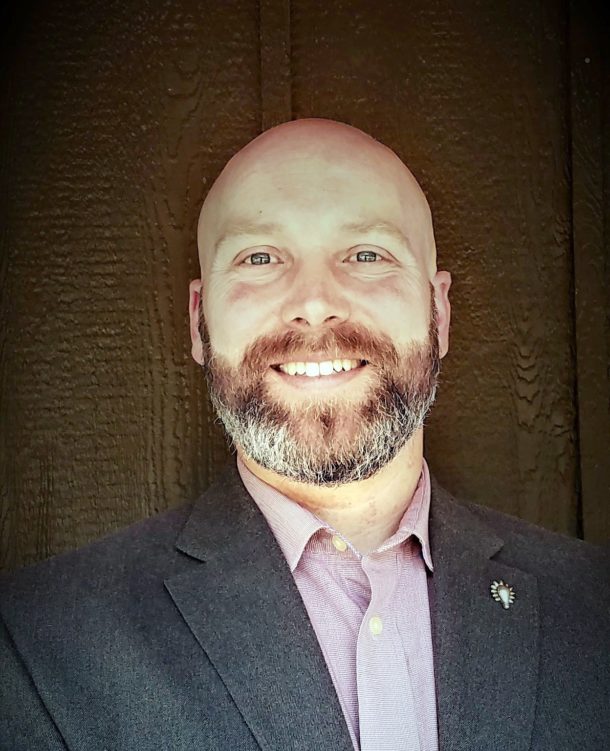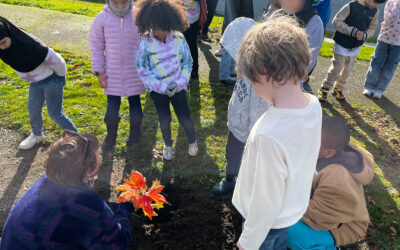Developed by Nathan Spencer, Science Consultant at Wayne RESA
As a Science Education Consultant in the largest region of Michigan, I wanted to find a way to encourage teachers to add Ambitious Science Teaching Practices to their classroom routines by sharing the Ambitious Science Teaching pedagogy through a 3-year program that provides specific ongoing support through community, instructional coaching, shared learning, and the Studio Day protocol. I was awarded grant money through the state to develop this program that I call the ‘Master Science Teacher Fellowship’ for teachers in Wayne County Michigan. The goal of the Master Science Teacher Fellowship is to provide professional learning experiences to facilitate science teachers’ growth in their professional knowledge and practice, to become effective mentors and coaches, and to become instructional leaders within their schools, districts, and the science education community. I would like to share how supporting the teachers in this program through instructional coaching has been a powerful and enlightening experience for the coach and coachee alike.
This journey began with multiple shared learning experiences that focused on Ambitious practices by developing a common language and shared understanding of what these practices might look like in their classroom. Through a book study of Ambitious Science Teaching, and a 5-day workshop called NGSX in which the participants experienced the practices of the AST Framework as adult learners and then reflected on those experiences through their lens as classroom science teachers – the community began to develop a strong sense of the work ahead. A large part of the Fellows’s experience and growth opportunities came through instructional coaching cycles that they engaged in 2-4 times per year. The coaching cycles were structured using different models including work done through Harvard University’s “Best Foot Forward Project”, Jim Knight’s “Impact Cycles” and “Using Video for High Impact Instruction”. These seminal works were combined into a coaching tool that supports teachers in setting both student learning goals and what I call Ambitious Science Teaching Practices (derived from both AST work and Michigan’s Core Teaching Practices).
Fellows worked closely with me to determine which practice(s) they were most interested in learning through experience first and the coach and coachee modified existing lessons (or developed the lesson/unit) and did important pre-thinking about what this practice looked like in the classroom (what the teacher should and should not be doing, what the students should and should not be doing) as well as what classroom data we can collect to determine how their goals for students and themselves have been met. In the classroom, the coach’s role was to both record the teacher’s interactions with students and the students’ interactions with each other. There is a very brief conversation about the teacher’s and student’s experience in the lesson, however, critical reflection occurs in a post-observation conversation that is video-centered. The video that was captured is edited to only focus on the classroom moments that are specific to the Ambitious Practices goals that were set by the teacher amounting to a 10 – 20 minute video. The video is shared with the teacher along with a reflection guide that asks the teacher to determine what moments in the video stand out as significant to them as they and their students are working towards goals. The teacher considers the importance of the video data to their goal, its connections to their goal and what are some potential next steps/considerations.
The coach and teacher also prepared the collected data we determined would give us the best evidence of student learning and teacher practice to discuss in the post-observation coaching meeting. For instance, it has been common that the Ambitious Practices goals the teacher wanted to focus on were explanatory modeling practices with a strong emphasis on how discourse moves are pushing the students to share and reason. In these instances, we can look both at student-generated models and an equity mapping tool that shows who is doing the talking and what they are saying. Because the teacher has access to all of the data (video, student work, discourse-related data), they can reflect on their practice and student outcomes before discussing it with the coach. The post-observation meeting is an opportunity for the teacher to share their reflection and potential next steps and the coach can also come prepared with questions to push the teachers’ thinking about practice and opportunities to build equity and justice-centered structures and approaches in their classrooms.
An important outcome of this is that it leads directly to what the teacher would like to work on next, whether it is the same goals in a different lesson or focusing on another practice based on their reflection. These turn into iterative opportunities for both the coach and coachee. It is important that teachers have the opportunity to consider and determine where they feel their greatest needs lie with the support of someone whose goal is to focus questions to the teacher about practice. It is important to note for teachers, coaches, administrators, and school systems that instructional shifts towards equitable instructional practices and classroom takes time, reflection, and sustained support through structures such as curriculum-embedded professional learning, sustained instructional coaching, intentional professional learning community work, and informed administrative support. It is also important to discuss the absolute importance of high-quality curricular resources. What I have found consistently with the group of educators that I am working with is that those whose district has adopted instructional resources that either have embedded ambitious practices or are easily amenable to them are far more likely to continue to refine their practice using ambitious and high leverage teaching practices outside of the direct support of coaching cycles. When teachers need to consistently refine units of instruction to include anchoring phenomena and explanatory modeling or argumentation practices, the work becomes overwhelming and these components of ambitious teaching are left out. What the teachers in this program have demonstrated over and over again is their persistence and reflective practice toward making their teaching more inclusive and justice-oriented through productive discourse.





 This site is primarily funded by the National Science Foundation (NSF) through Award #1907471 and #1315995
This site is primarily funded by the National Science Foundation (NSF) through Award #1907471 and #1315995